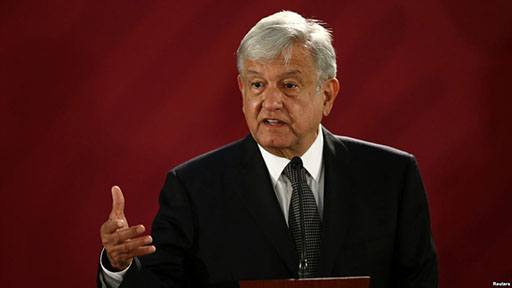 A newly released International Monetary Fund forecast has bad news for Latin America: It will be the slowest growing region in the world this year. To put it another way, it will be the world champion of economic stagnation.
A newly released International Monetary Fund forecast has bad news for Latin America: It will be the slowest growing region in the world this year. To put it another way, it will be the world champion of economic stagnation.
According to the new IMF forecasts, Latin America’s economies will grow by a combined average of only 0.6 percent in 2019. And that’s excluding Venezuela, which the IMF says will collapse by a whopping 35 percent this year. If you add Venezuela to the mix, Latin America’s economy looks even worse.
That should trigger alarm bells in the region, because it’s happening amid a growing world economy. The IMF is forecasting that the global economy will grow by 3.2 percent this year, including a 2.6 percent growth rate in the United States, a 6.2 percent average growth rate in Asia and a 3.4 percent growth in sub-Saharan Africa.
Most of Latin America’s biggest countries’ economies will do worse than previously expected, the IMF said.
Mexico’s growth rate has been revised downward to a 0.9 percent this year; Brazil’s economy is expected to grow by only 0.8 percent; Argentina’s is projected to shrink by 1.3 percent in 2019 and grow by 1.1 percent in 2020. Only Chile, Colombia and Peru will grow at healthy rates of 3.2 percent, 3.4 percent and 3.7 percent respectively this year, the IMF says.
What’s causing Latin America’s stagnation? Among other things:
▪ Lack of continuity in economic policies, which scares away investors: In most countries in the region, every new president wants to re-invent the wheel, and undoes everything that was done by the previous leader.
Mexico is the clearest current example. President Andres Manuel López Obrador vows to carry out a “historic transformation” after three decades of what he disdainfully calls “neo-liberal” governments. He is suspending ongoing infrastructure projects, such as a $13 billion renovation of the Mexico City airport, and rolling back badly needed reforms to improve education standards.
In fact, despite obscene corruption and income-disparity levels, Mexico’s economic stability helped reduce extreme poverty from 11.1 million in 1998 to 2.5 million in 2016, according to World Bank figures. Now, López Obrador’s “historic transformation” is triggering widespread investors’ fears, slowing down investments, driving down economic growth and threatening to increase poverty.
López Obrador does not seem to understand that without investments, there will be no growth, and without growth, there will be no further reduction of poverty.
▪ Excessive public spending, low productivity rates and a huge income gap between rich and poor: Many of the region’s biggest countries, such as Argentina, spend much more than they produce. New figures making the rounds in international financial institutions show that Argentina has only 9 million private-sector and self-employed workers, who together are supporting 15.3 million people who are paid by the state, including pensioners, people getting government subsidies and public employees.
Between 2003 and 2015, during the Nestor Kirchner and Cristina Fernandez de Kirchner’s populist governments, Argentina’s public spending nearly doubled, according to IMF estimates. That makes any country’s economy unviable.
And yet, former president Cristina Fernandez is leading in the polls as the vice-presidential candidate on a ticket running against President Mauricio Macri. And she could win the October election. It seems Argentines have not yet learned that you cannot live beyond your means.
▪ Dismal education, science, technology and innovation standards: Latin American countries rank last in the international PISA test of 15-year-old students and register relatively few international patents of new inventions.
While South Korea registered 17,000 patents with the World Intellectual Property Organization last year, all Latin American and Caribbean countries together registered only 537. In other words, the 33 Latin American and Caribbean countries together produced less than 5 percent of the international patents registered by South Korea. In a knowledge-based global economy, that’s a recipe for backwardness.
The bottom line is that countries in the region cannot blame their economic stagnation to outside factors, because the world economy is growing and other emerging countries around the world are doing much better. Like recovering alcoholics, they should start acknowledging that they have a problem and start tackling it by creating a climate that attracts investments and promotes innovation.









